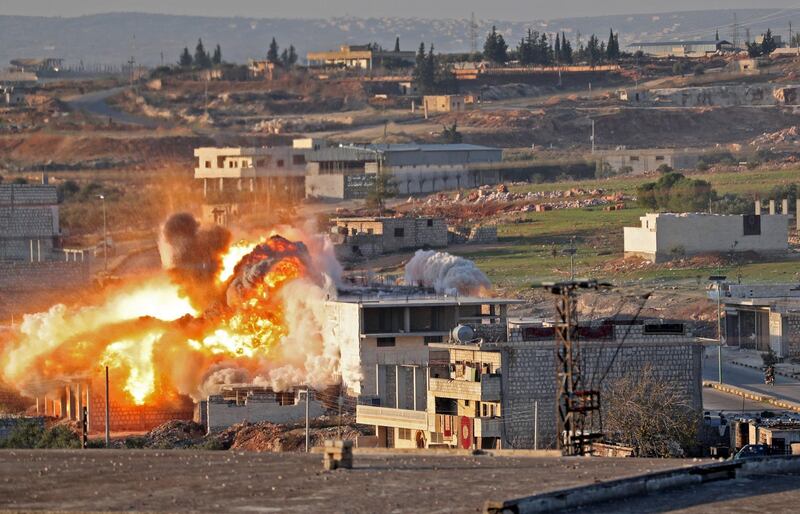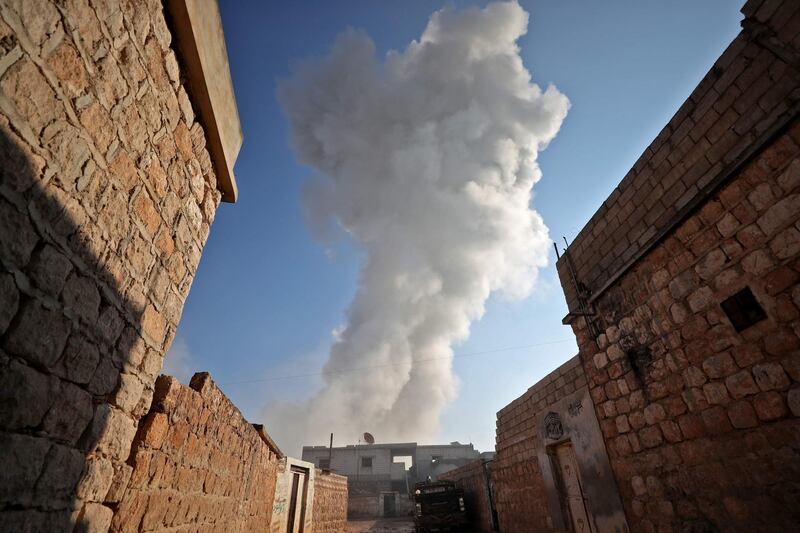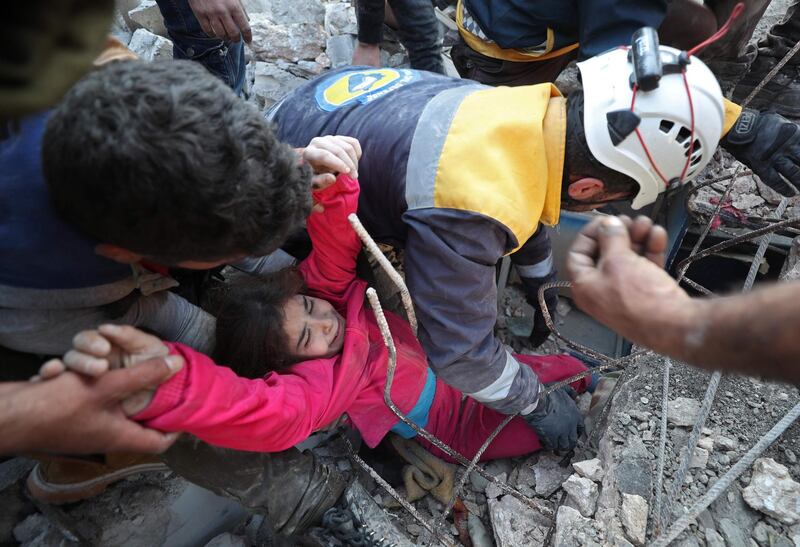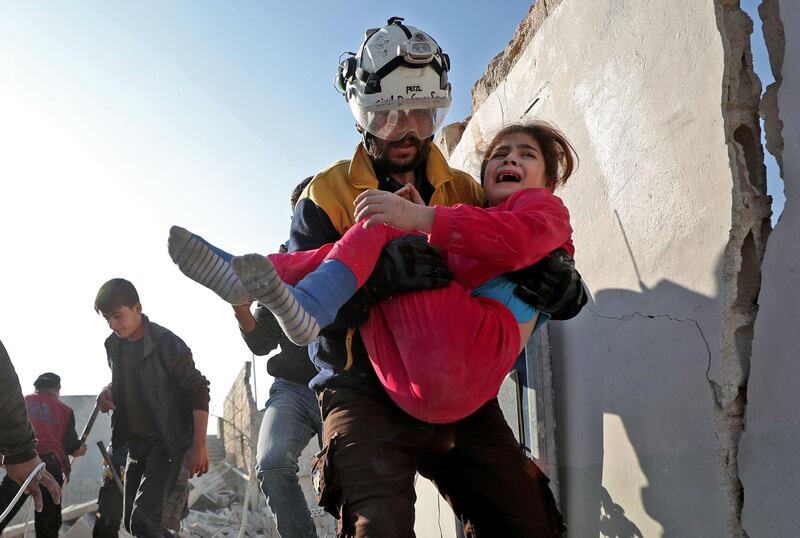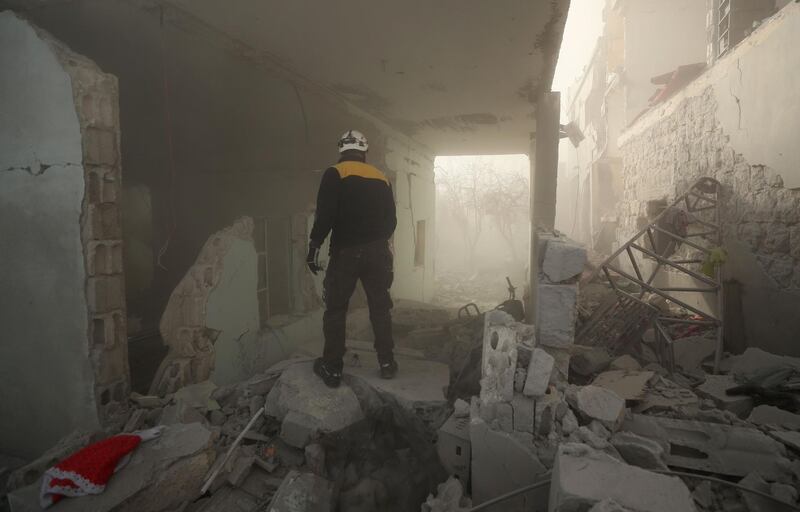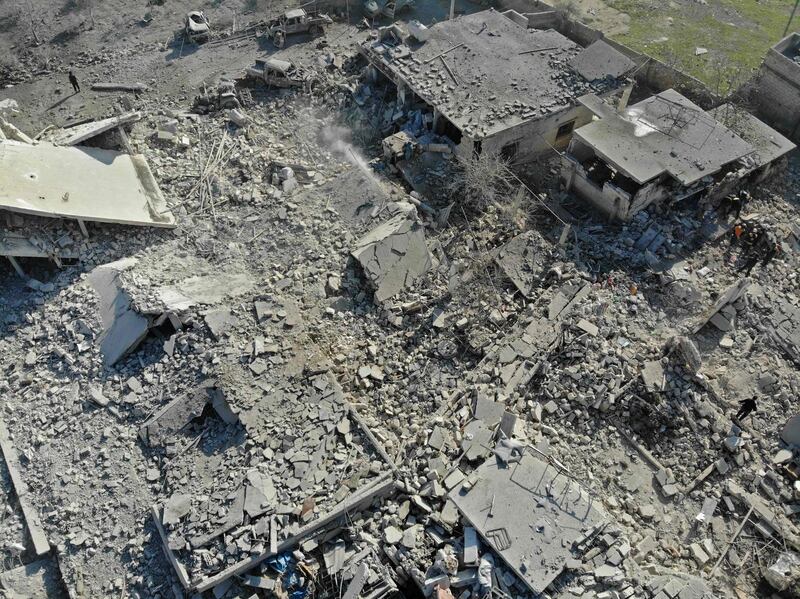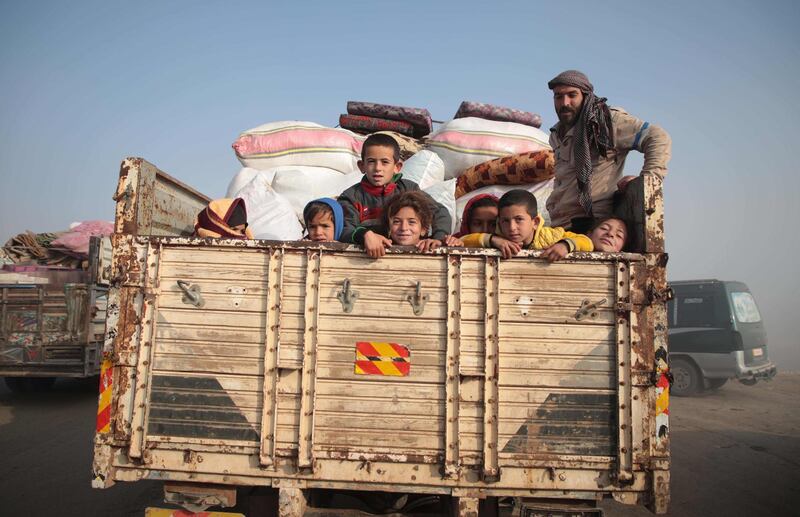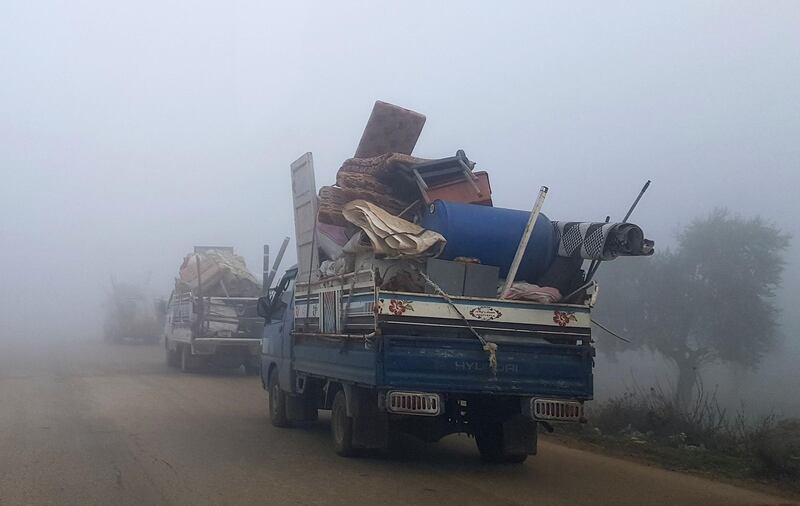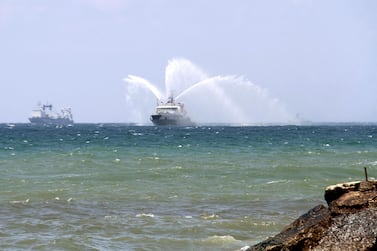Tens of thousands of Syrians are fleeing their homes as pro-government and Russian forces double down on the country’s north-west Idlib province, unleashing one of the highest weekly death tolls in a months-long bombing offensive.
Idlib is Syria’s last major rebel-held territory following years of battles. The fighting has seen pro-government forces seize pocket after pocket of opposition territory across Syria, displacing hundreds of thousands of people in the process.
Many of them ended up in Idlib, where some 3 million Syrians now live crammed into makeshift camps, rented homes or simply sleep under olive trees for shelter.
Since late April, however, Idlib has been the latest focus of pro-government onslaught. More than 1,000 people are estimated to have been killed there in recent months by barrages of airstrikes and artillery fire.
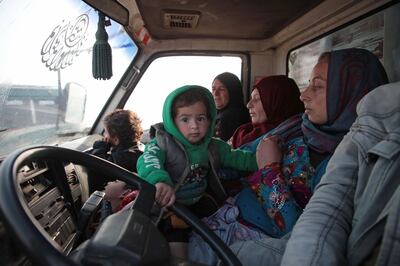
The targets have included dozens of civilian hospitals, homes and crowded local markets.
Over the last week, an ever-intensifying round of bombardment has spurred yet another wave of displacement in Idlib – largely towards the underserved camps in the province’s north, where winter weather is devastating already threadbare tents.
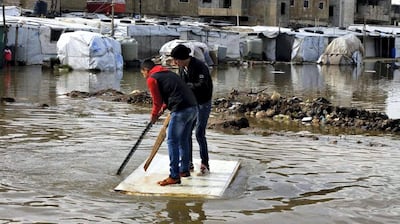
In recent weeks, up to 60,000 people have been displaced due to the bombing in Syria's north-west, UNOCHA spokesperson Danielle Moylan told The National on Thursday. Among them are tens of thousands of people from the towns and villages that are coming under increased fire from pro-government forces, local activists and officials from the Civil Defence, a volunteer rescue group commonly known as the White Helmets, said.
Turkish President Recep Tayyip Erdogan said this week that 50,000 refugees have fled towards the border with Turkey seeking safety. But it comes at a time when anti-refugee sentiment is rising and Mr Erdogan seeks to send up to 1 million refugees to an area of north-east Syria his forces captured from US-backed Kurdish led groups in recent weeks.
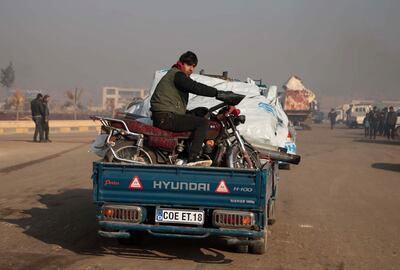
In photos shared with The National, Idlib residents ride north from their hometowns, crammed into the beds of pickup trucks alongside any mattresses and furniture that fit.
They are escaping one of the deadliest weeks of bombing on their hometowns since Syrian government and allied Russian forces launched an aerial and artillery campaign over Idlib province in late April.
The killing has largely centred on southern stretches of rural Idlib, near the frontlines with pro-government forces.
Some 23 people are believed to have been killed in the onslaught on Tuesday alone, according to local activists.
The onslaught comes despite a de-escalation deal announced last September by Turkey and Russia, which was meant to stave off a widely anticipated government offensive on Idlib.
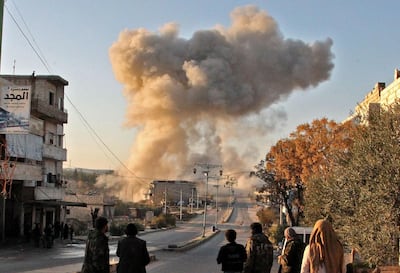
The deal set up a so-called “buffer zone” surrounding Idlib and rebel-held parts of neighbouring Aleppo, Hama and Latakia.
But the deal did nothing to halt a now months-long offensive.
And a unilateral ceasefire announced by Russia in August this year, ostensibly aimed at halting the killing, only saw it continue.
While civilians are bearing the brunt of the violence, rebel forces in Idlib have also incurred heavy losses. Advancing pro-government forces seized the strategic highway city of Khan Sheikhoun in August, retaking what was once an opposition stronghold. Much of the city was left in ruins.
Now, another key highway town is being targeted. In Maaret Al Numan, some 20 kilometres north, airstrikes and artillery fire have been pummelling civilian homes. Videos posted to social media in recent days by local Civil Defence workers show teams of rescuers digging up bodies from the rubble, surrounded by the crushed remnants of what were concrete houses.
But the escape north, to the relatively safer villages along Idlib’s border with Turkey, has brought little respite.
Mustafa, a father from the village of Talmanas outside Maaret Al Numan, told The National on Thursday that the vehicle carrying him, his wife and young children was "fired on" as they fled home in recent days. Nobody was injured, he said by phone. Mustafa's village was among those that faced devastating bombardment in recent days, with seven members of one family killed by artillery fire, according to local activists.
Mustafa and his family found safety, but little else, in a makeshift displacement camp near the Turkish border.
“There’s no healthcare here, and the camp isn’t suitable for living,” he said, estimating the camp held some 45 tents for nearly 300 people newly displaced from southern Idlib.
“Conditions here are tragic.”
In the village of Killi, about 10 kilometres from the Turkish border, the director of one makeshift displacement camp had little to say when asked about conditions for the dozens of families living there.
Instead, he sent dozens of photos of the camp’s tents submerged in mud following a winter rainstorm earlier this week. In most photos, the tents are little more than tarpaulin sheets held down by breeze blocks.
The camp receives no outside support from aid organizations, he said.
With reports late on Thursday night of pro-government ground forces advancing on one village in southern Idlib, and of the bombing continuing into the night, those displaced by the onslaught this week say there is little hope of leaving anytime soon.
Alaa A Din, a father of two from a village near Maaret Al Numan who fled to a northern displacement camp earlier this week, said on Thursday that he was planning to stay there for the time being.
There simply isn't anywhere else for him to go, he told The National.
“It’s been three days of torture, sleeping here on the ground,” he said.
Alaa a Din now plans on building a stronger tent for his family, to protect them from the harsh winter weather in northern Idlib province.
Otherwise, there is little to sustain a semblance of normal life in the camp. His wife and children simply sit under a waterproof sheet most of the time, to take shelter from the cold rain.
“Of course, if the bombings stopped I wouldn’t want to continue living in this camp – not for one more hour,” he said.
“There isn’t anything here. We wouldn’t have left our homes in the first place if not for the fear of the bombings.”
